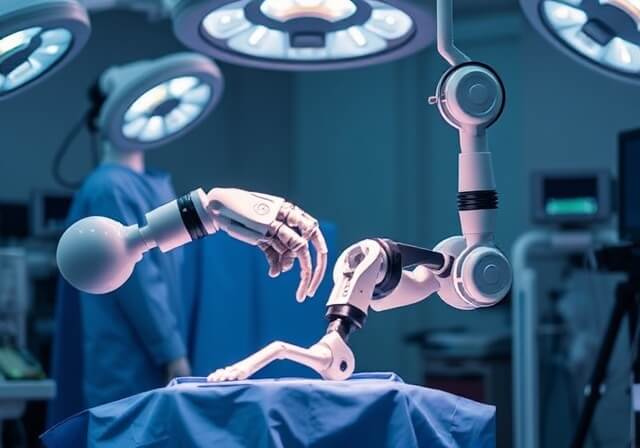There are several other issues that must be considered in the design of the workcell.
Among these considerations are the following:
Changes to other equipment in the cell
To implement the workcell and interface the robot to the other equipment in the cell, alterations will often have to be made to the equipment.
Special fixtures and control devices must be devised to permit the cell to operate as a single, integrated mechanism.
Examples of these fixtures and controls include work-holding nests and conveyor stops to position and orient the parts for the robot, changes in the machines to allow the robot arm to gain access to the equipment, and limit switches and other devices to interface the various components in the cell.
Part position and orientation
For raw workparts being delivered into the cell, it is important that the robot have a precise pick up location to get the parts from the conveyor or other work-handling system.
At this pick up point, the parts must be in a known orientation to enable the robot to grasp and hold it consistently and accurately.
During subsequent processing within the cell, this part orientation should not be lost.
A method for achieving these objectives of part positioning and orientation must be designed into the workcell.
Part identification problem
In cells where more than one type of part is processed or assembled, a method of identifying the particular part type must be determined.
This can be done by any of a number of automated means, involving optical techniques or limit switches to sense differences in size or part geometry.
Protection of the robot from its environment
In certain types of applicaltions (spray painting, hot metal-working operations), a means of protecting the robot from the adverse effects of its environment must be provided.
Utilities
Providing the necessary utilities (electricity, air pressure, gas for furnaces, etc.) must be included among the factors considered in the design of the workcell layout.
Control of the workcell
The activities of the robot must be coordinated with those of the other equipment in the cell. This subject is referred to by the term workcell control, and several sections are devoted to it and its related topics in this chapter.
Safety
A means of protecting human personnel from harm in and around the robot workcell must be provided. This is generally accomplished by means of fences or other barriers, and by designing a safety monitoring system to interrupt the cell operation if unsafe conditions are encountered.
| Read More Topics |
| Goals of artificial intelligence |
| Textual robot languages |
| Robot cell layout |





